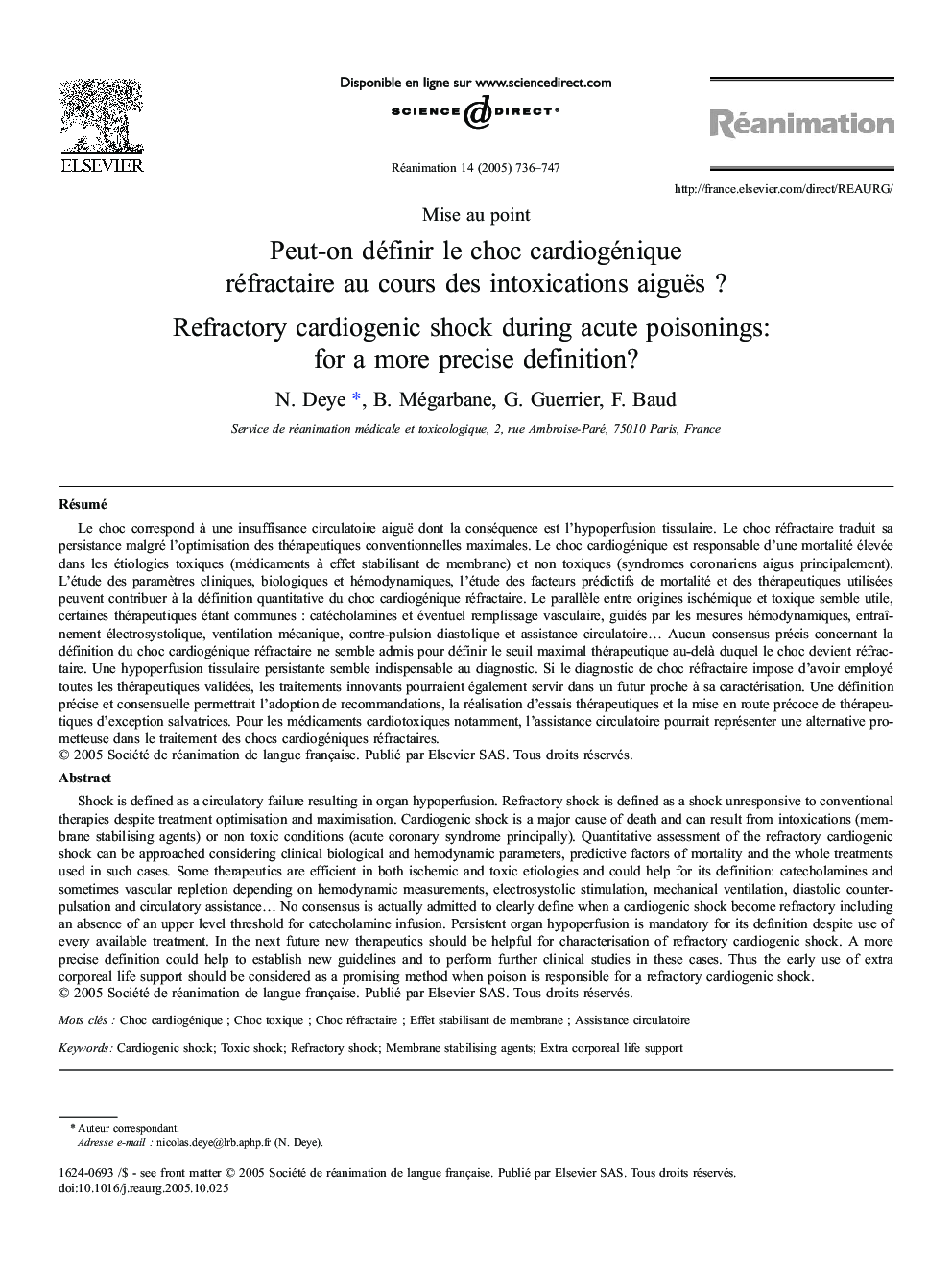| Article ID | Journal | Published Year | Pages | File Type |
|---|---|---|---|---|
| 9045043 | Réanimation | 2005 | 12 Pages |
Abstract
Shock is defined as a circulatory failure resulting in organ hypoperfusion. Refractory shock is defined as a shock unresponsive to conventional therapies despite treatment optimisation and maximisation. Cardiogenic shock is a major cause of death and can result from intoxications (membrane stabilising agents) or non toxic conditions (acute coronary syndrome principally). Quantitative assessment of the refractory cardiogenic shock can be approached considering clinical biological and hemodynamic parameters, predictive factors of mortality and the whole treatments used in such cases. Some therapeutics are efficient in both ischemic and toxic etiologies and could help for its definition: catecholamines and sometimes vascular repletion depending on hemodynamic measurements, electrosystolic stimulation, mechanical ventilation, diastolic counterpulsation and circulatory assistance⦠No consensus is actually admitted to clearly define when a cardiogenic shock become refractory including an absence of an upper level threshold for catecholamine infusion. Persistent organ hypoperfusion is mandatory for its definition despite use of every available treatment. In the next future new therapeutics should be helpful for characterisation of refractory cardiogenic shock. A more precise definition could help to establish new guidelines and to perform further clinical studies in these cases. Thus the early use of extra corporeal life support should be considered as a promising method when poison is responsible for a refractory cardiogenic shock.
Keywords
Related Topics
Health Sciences
Medicine and Dentistry
Emergency Medicine
Authors
N. Deye, B. Mégarbane, G. Guerrier, F. Baud,
